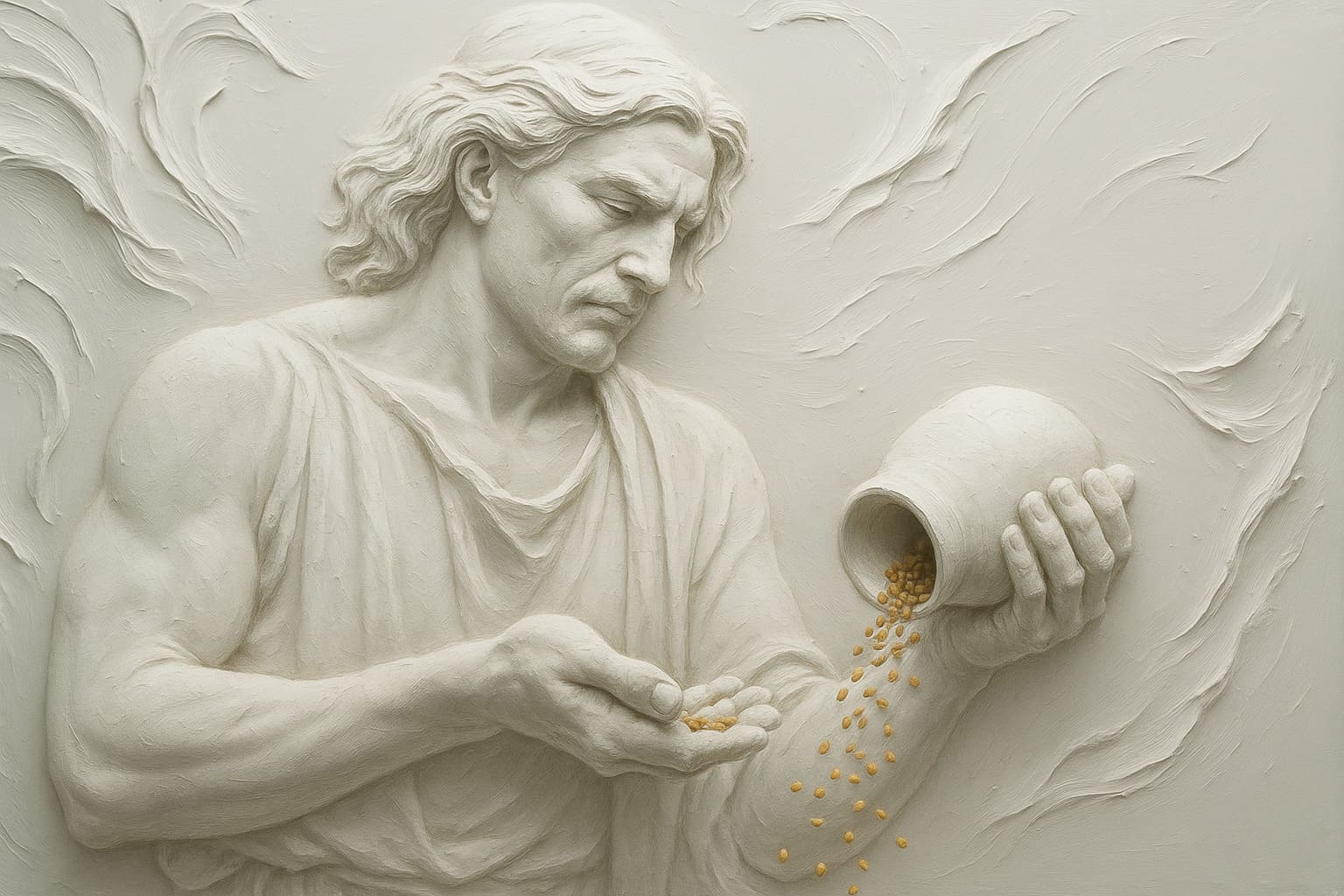Tag: Natural Remedies
-

Yohimbine: What It Can and Can’t Do
Yohimbine is a supplement that often shows up in conversations about fat loss and sexual performance. Some see it as a fat burner, others as a possible support for erectile issues. But the reality is more complex than marketing claims. Here’s what the science says — in plain terms.
What Is Yohimbine
Yohimbine is a compound found in the bark of the yohimbe tree. It works as a stimulant and blocks alpha-2 adrenergic receptors. That may help the body mobilize fat and improve blood flow — including to the pelvic area. That’s why it was once sold as a prescription treatment for erectile dysfunction.
Does It Help with Erectile Dysfunction
Yes, there’s some evidence. Yohimbine was used as a drug for erectile dysfunction in the past. Studies found it worked better than placebo in men with mild to moderate symptoms. One clinical trial showed improvements in 71% of men taking yohimbine, compared to 45% on placebo (Vogt et al., 1997).
Other research confirmed this trend (Rowland et al., 1997, Ernst & Pittler, 1998). But the results aren’t consistent in every case. In more severe forms of ED, yohimbine may be less effective.
Can It Help with Fat Loss
Yohimbine may support fat loss — especially in those hard-to-burn areas like the lower back and belly in men. It works by targeting fat receptors that slow down fat breakdown.
In one study, soccer players who took 20 mg of yohimbine daily for 21 days lost more body fat than those on placebo, with no drop in performance or side effects (Ostojic, 2006).
But there’s a catch: it only works when fasting. If you take it with food or right after a meal, insulin blocks its effect. That’s why it’s usually taken first thing in the morning or at least 2.5 hours after eating.
What About Focus and Mood
Some use yohimbine as a light nootropic. It can give a temporary boost in energy, mood, and social confidence — especially when paired with caffeine and L-tyrosine. But for others, it causes tension or restlessness. The effect varies. For some, it’s motivation. For others — anxiety.
Side Effects and Risks
Yohimbine can increase anxiety, heart rate, and blood pressure. That’s especially risky for people with panic tendencies or heart issues.
Another big concern is product quality. A study tested 49 supplements and found that the actual amount of yohimbine ranged from 23% to 147% of what was listed on the label (Cohen et al., 2015). That makes dosing unpredictable.
Yohimbine can also interact with medications, especially psychiatric or blood pressure drugs. Combining it with strong stimulants like ephedrine can be dangerous.
How to Use It Safely
The common dosage is 0.2 mg per kg of body weight. For an 80 kg man, that’s about 16 mg. It’s best to start with less and see how your body responds.
Most people use it during the final stages of cutting, when regular diet and training stop giving results. A typical protocol might include caffeine, yohimbine, and L-tyrosine taken on an empty stomach before light cardio (like jogging or jump rope). Some follow it with a protein shake, others continue fasting.
What to Keep in Mind
Yohimbine isn’t a magic fix. It might help in specific cases — especially for stubborn fat or mild erectile issues — but it has limits. If your diet, training, and sleep aren’t in check, no supplement will replace that.
And if you decide to try it, be cautious. Look for reputable brands. Start small. If you’re on medication, talk to your doctor first.
Additional: check out this article.
-

Stress, Sleep, Testosterone: How Ashwagandha May Help
Ashwagandha has been used for centuries as a natural remedy for stress and fatigue. But beyond general wellness, it’s gaining attention for its impact on men’s health — especially hormones, fertility, sleep, and recovery. Here’s what’s worth knowing if you’re considering it.
Cortisol and Chronic Stress
Ashwagandha is known as an adaptogen — a plant that helps the body deal with stress. The key mechanism here is cortisol regulation. Cortisol is a hormone released by the adrenal glands during stress. When stress becomes chronic, the body may lose sensitivity to cortisol, leading to dysfunction. Ashwagandha appears to help bring cortisol levels back into balance, whether they’re too high or too low.
In a randomized controlled trial, participants who took 300 mg of ashwagandha extract twice daily for 60 days saw a significant drop in cortisol and perceived stress levels (Chandrasekhar et al., 2012). Another study showed similar effects even at a lower dose of 60 mg per day (Shoden extract, 2023).
By helping regulate cortisol, ashwagandha may also improve sleep, reduce anxiety, and support emotional balance — especially useful for those dealing with long-term mental or physical fatigue.
Testosterone, Libido, and Fertility
Ashwagandha’s role in hormone health goes beyond cortisol. Several studies suggest it may support testosterone production and sperm quality. In one trial, men who took ashwagandha for 8 weeks saw testosterone levels rise by an average of 15%, along with increases in DHEA‑S (Wankhede et al., 2015).
Another study followed men with low sperm count for 90 days. After taking ashwagandha daily, their sperm concentration increased by 167%, motility improved, and testosterone and luteinizing hormone levels went up (Mahdi et al., 2013).
This makes ashwagandha a potential option for men looking to support reproductive health, especially when stress is a contributing factor.
Endurance and Recovery
Ashwagandha may also support physical performance. It’s been shown to improve VO₂ max (a marker of aerobic fitness) and reduce muscle fatigue. This can be especially helpful for men who train regularly but feel run-down or slow to recover.
A systematic review published in Nutrition & Metabolism concluded that ashwagandha improves endurance, strength, and perceived recovery in physically active adults.
How to Take It — and When to Avoid It
Most sources recommend 600 mg of extract per day, split into two doses. It’s best taken with food, especially a meal containing fat, since some of its active compounds are fat-soluble. If you’re new to it, start small and work up gradually.
One common recommendation is to cycle the herb — take it for 6 weeks, then take 2 weeks off.
However, ashwagandha isn’t for everyone. You should avoid it if you have:
- hyperthyroidism (it may stimulate the thyroid);
- low blood pressure;
- low cortisol levels;
- iron overload disorders;
- sensitivity to nightshades;
- are pregnant or breastfeeding.
Taking high doses for long periods may also dull emotional response in some people. If you feel emotionally flat or numb, consider lowering the dose or taking a break.
Final Thoughts
Ashwagandha isn’t a stimulant, and it doesn’t offer instant results. But over time, it may help the body recover from chronic stress by supporting hormonal balance, improving sleep, and aiding physical recovery.
For men dealing with high stress, low energy, or fertility issues, it could be a useful tool — especially when combined with healthy sleep, training, and nutrition habits. As always, it’s best to approach any supplement with realistic expectations and a clear understanding of your own health needs.
-

Amazonian Viagra: What Science Says About Muira Puama
Muira puama, often called “potency wood” or “Amazonian Viagra,” is a plant native to the Amazon rainforest. Traditionally used to fight fatigue and sexual dysfunction, it has gained popularity as a supplement targeting male performance and vitality. But what does the research actually show?
Libido and Erectile Function
Muira puama’s reputation is largely built on its historical use as an aphrodisiac. In Brazil, it’s still listed in the national pharmacopoeia for this purpose. Some clinical studies provide early support for its effect on male sexual function.
One open-label trial in men with low libido found that 60–70% reported increased sexual desire and improved erectile function after two weeks of taking muira puama extract (Drugs.com).
Another study tested a supplement called Revactin®, which includes muira puama among other ingredients. Researchers observed activation of the nitric oxide pathway in smooth muscle cells — a key mechanism behind improved blood flow during erections, similar to how PDE5 inhibitors like sildenafil work (PMID: 33425731).
Effects have also been studied in women. A small trial involving 202 women with low sex drive found that 65% experienced improved sexual desire and satisfaction after one month of supplementation (Drugs.com).
Possible Mechanisms
Muira puama contains plant sterols, which serve as building blocks for sex hormones like testosterone. Lab studies suggest that its extracts help relax the corpus cavernosum — the erectile tissue in the penis — improving blood flow during arousal (PMID: 33425731).
Energy, Focus, and Memory
Beyond its effects on libido, muira puama is also used as a tonic for fatigue and low stamina. It has long been applied in traditional medicine as a general nerve stimulant. Some modern studies are starting to explore its influence on brain function.
Animal studies have shown memory-enhancing effects, possibly due to its ability to inhibit acetylcholinesterase — the enzyme that breaks down acetylcholine, a key neurotransmitter for learning and memory (Phytomedicine, 2010).
In one study, older mice treated with muira puama extract performed better in memory tasks compared to untreated animals. These findings suggest a possible role in cognitive support, although human trials are still lacking (Global Healing).
Safety and Side Effects
Muira puama is generally considered safe when used appropriately. Reported side effects include insomnia, headaches, nausea, and digestive discomfort. There are also some concerns about potential interactions with medications for blood pressure and blood thinning. If you’re on any regular medication, it’s worth speaking with your doctor first.
How to Take It
Muira puama supplements are available in tincture, capsule, and powdered forms. Typical dosing for tinctures is 2–4 ml twice per day, but this can vary depending on concentration. It’s best to start with a low dose and monitor how your body responds.
Final Thoughts
Muira puama is a plant with a long history and a growing interest in modern health contexts. While early research is promising — particularly for libido and erectile support — the scientific evidence is still developing. Most studies are small and short-term, and more rigorous clinical trials are needed.
If you’re thinking about trying muira puama, approach it like any supplement: with curiosity and caution. It may be a useful addition to a broader strategy for men’s health, but it’s not a substitute for good sleep, physical activity, balanced nutrition, and stress management.
-

Can Shilajit Boost Testosterone and Fertility?
Shilajit is a thick, tar-like substance that forms over centuries in mountain rocks through the gradual decomposition of plant material. It’s found in regions like the Himalayas, the Tibetan Plateau, and the Altai mountains. Traditionally used in Ayurvedic medicine, it’s now gaining attention in men’s health circles — mainly for its possible effects on hormones, fertility, and physical recovery.
Let’s take a closer look at what the research shows so far.
Shilajit and Testosterone
One of the most cited studies on Shilajit and testosterone was published in 2015. In a double-blind, placebo-controlled trial, men aged 45–55 were given 250 mg of purified Shilajit twice a day for 90 days. The group that received Shilajit showed a statistically significant increase in both total and free testosterone compared to placebo. (PubMed link)
Some follow-up reports noted an increase of around 20% in testosterone levels, which suggests that Shilajit might be helpful for men with age-related hormonal decline.
Effects on Fertility
Another clinical study focused on men with oligospermia — a condition characterized by low sperm count. After taking processed Shilajit for 90 days, participants showed improvements in several fertility markers:
- Sperm count increased by 61.4%
- Sperm motility improved
- Oxidative stress markers were reduced
(PubMed link)
Hormonal markers like testosterone and FSH (follicle-stimulating hormone) also increased, which may suggest enhanced spermatogenesis.
Muscle Support and Recovery
There’s growing interest in how Shilajit might support physical performance and muscle repair. In a study published in 2018, participants took either 250 or 500 mg of Shilajit daily for eight weeks. The higher-dose group had better post-exercise muscle strength and lower levels of hydroxyproline — a marker of collagen breakdown. (PMC article)
Shilajit was also found to increase DHEA and testosterone levels in this context, which may help explain its potential effects on recovery and muscle maintenance.
Some early evidence points to changes in the expression of genes related to tissue repair and structural integrity, but more human data is needed.
What About Hair?
There are some theories that fulvic acid — one of Shilajit’s key compounds — may bind to heavy metals and toxins that interfere with hair follicles. Others suggest it may improve mineral absorption, which could support nutrient delivery to the scalp.
Some users mix a small amount of Shilajit with oils like coconut or olive oil and apply it to the scalp. But for now, this remains anecdotal — no solid human studies confirm the benefits for hair growth.
Dosage and Safety Notes
Most sources recommend a daily dosage of 300–500 mg of purified Shilajit. Raw or unprocessed Shilajit is not safe and may contain heavy metals, fungi, or free radicals.
It’s also not recommended if you have:
- Sickle cell anemia
- Hemochromatosis (iron overload)
- Thalassemia
Possible side effects include dizziness, rashes, and elevated heart rate. It may also lower blood pressure, so those with hypotension or heart disease should approach with caution.
Look for products that have been third-party tested for purity and contaminants. There’s a lot of low-quality Shilajit on the market, so sourcing matters.
Bottom Line
Shilajit shows potential benefits for men — especially around testosterone levels, fertility markers, and physical recovery. The available research is promising but limited, and more large-scale human studies are needed.
If you’re considering it, make sure the product is purified and start with a conservative dose. And as always, talk to your doctor — especially if you have pre-existing health conditions or take other medications.
-

Tongkat Ali and Men’s Health: What the Research Says
Tongkat Ali (Eurycoma longifolia), also known as Malaysian ginseng, is a Southeast Asian plant traditionally used to support male vitality. Today, it’s getting attention for its potential impact on testosterone, sexual function, and fertility. But what does the research actually show?
How It Works
Testosterone naturally declines with age — about 1–2% per year after age 30. By age 60, levels can be down to half of what they were in early adulthood. Stress, poor sleep, and inactivity only speed this up.
Unlike hormone therapy, Tongkat Ali doesn’t add testosterone from outside. Instead, it may help free up the testosterone already in the body by reducing the binding of testosterone to a protein called SHBG (sex hormone-binding globulin). Some studies also suggest it may slow down how quickly testosterone breaks down in the body, making more available for longer.
A study of men with low testosterone showed that taking 200 mg of Tongkat Ali daily for a month significantly increased testosterone levels and improved self-reported well-being
(Talbott et al., 2013).In another study, men around age 51 saw improved hormone profiles after just four weeks of daily supplementation
(Leitão et al., 2021).Sexual Function and ED
A double-blind, placebo-controlled study with 109 men tested a standardized water extract of Tongkat Ali over 12 weeks. Results showed improvements in libido, sexual satisfaction, and sperm motility
(Tambi et al., 2012).In other trials, men with moderate to severe erectile dysfunction showed slight improvements after supplementing with Tongkat Ali. While the overall effects weren’t strong across all groups, there may be benefits for those with more serious symptoms.
Fertility
In one study, 75 men with poor semen quality took 200 mg of Tongkat Ali daily for up to 9 months. Results showed significant increases in sperm count, motility, and normal morphology
(Tambi et al., 2010). This is relevant for men dealing with subfertility, especially those avoiding testosterone replacement, which can reduce sperm production.Muscle and Body Composition
Some small studies suggest Tongkat Ali might support muscle gain. In young men following a weight training program, those who took 100 mg daily saw greater increases in lean mass and arm circumference compared to the placebo group.
Side Effects and Risks
Reported side effects include insomnia, irritability, and restlessness — usually at higher doses (400–600 mg/day). Tongkat Ali may also lower blood sugar levels, so those on diabetes medication should use caution
(Chan et al., 2009).It’s not recommended for people with hormone-sensitive cancers, serious heart or kidney conditions, or for pregnant or breastfeeding women. There’s not enough safety data for those groups.
Dosing and Quality
Most clinical studies used doses between 200–400 mg daily, often for 4 to 12 weeks. Some people follow an on/off cycle (e.g. one week on, one week off), but consistent daily use tends to show better results.
Look for standardized water-based root extracts — the type used in clinical studies. Avoid products with vague labeling or aggressive health claims. Reputable brands often verify their formulas with third-party testing (e.g., USP, NSF, ConsumerLab).
Bottom Line
Tongkat Ali isn’t a miracle cure, but the science suggests it can help normalize testosterone, improve sperm parameters, and support energy and libido — especially in men with low levels to begin with. It may be useful as part of a broader approach to men’s health, provided it’s used responsibly and with medical guidance.
-

Not Just Hype: What Korean Ginseng Can Actually Do for Men
Korean red ginseng (Panax ginseng) isn’t just another trendy supplement. It’s one of the most studied herbal adaptogens, especially when it comes to men’s health. But what does the research actually say? And is it worth adding to your routine?
Here’s what clinical data and reviews suggest.
Brain Function and Focus
One of the most promising areas is cognitive support. Studies show that Korean ginseng can reduce fatigue, improve reaction time, and enhance mental clarity—even in healthy young adults. That’s rare for any supplement.
This effect is linked to the upregulation of BDNF, a neuropeptide that helps neurons grow and form new connections. Ginsenosides—the active compounds in ginseng—also influence key neurotransmitters like dopamine, serotonin, and acetylcholine, all of which are critical for memory and focus.
A clinical trial published in Frontiers in Aging Neuroscience found that six months of ginseng supplementation improved memory in people with mild cognitive impairment (source).
Mood and Stress
Korean ginseng has also been shown to reduce stress and improve subjective well-being. The underlying mechanisms are likely the same as those behind its cognitive effects—enhanced signaling of dopamine and serotonin.
Research often finds that supplements that support cognitive function also affect mood. That seems to be the case here.
Hormonal Health and Testosterone
The research here is more mixed. Some studies suggest that Korean ginseng can increase testosterone levels—but mainly in men with low baseline levels, like those with hypogonadism or infertility. Healthy men are less likely to see a change.
One proposed mechanism is that ginseng may inhibit 5-alpha-reductase, the enzyme that converts testosterone into DHT. This might lead to a buildup of testosterone in the system. Ginseng may also act as a testicular antioxidant.
But there’s a catch. Ginseng also has mild phytoestrogenic properties. That means it may mimic estrogen in the body—something to be aware of, especially if your estrogen levels are already in the normal range.
In short: ginseng isn’t a reliable testosterone booster. It might support hormone health in specific cases, but it shouldn’t be your main tool.
Libido and Sexual Function
The evidence is more solid here. Clinical trials and systematic reviews suggest that Korean ginseng can improve libido and erectile function.
In one review (Frontiers in Sexual Health and Biohacking, 2023), researchers reported statistically significant improvements in erectile quality based on IIEF scores—a standard measure for erectile dysfunction. Ginseng was also linked to better stamina and energy, which can indirectly affect sexual performance (source).
The likely mechanisms: better blood flow, stress reduction, and dopaminergic activity—all important for libido and arousal.
General Health Benefits
Korean ginseng has a broader impact beyond the brain and hormones. Studies suggest it can:
- help regulate blood sugar
- reduce inflammation
- support immune function
- improve antioxidant defenses
- lower oxidative stress
- improve lipid profiles
These effects aren’t dramatic, but they can make a meaningful difference over time. Ginseng works as a mild adaptogen, helping the body stay resilient under physical or mental strain.
How to Take It
A standardized extract is the best option. Most research uses doses between 100–400 mg per day of active ginsenosides. In comparison, the powdered root may require up to 10 grams daily to reach similar levels—impractical for most people.
Lower doses tend to feel more calming. Higher doses can be mildly stimulating. This likely reflects the balance of different ginsenosides that activate at different concentrations.
Is It Worth It?
If you’re looking for a mild, natural way to support focus, energy, and sexual function, Korean ginseng may be worth a try. It’s not a miracle cure, and it won’t replace medical treatment. But as part of a bigger health strategy, it has a solid evidence base behind it.
Just don’t expect immediate effects. It works gradually—typically over weeks or months. And like any supplement, it’s best to talk with your doctor first, especially if you’re on medications or managing a chronic condition.
-

Catuaba: Libido, Mood, Energy — Myth or Medicine?
Catuaba is a bark extract from the Trichilia catigua tree, native to Brazil. Traditionally, it’s been used as an aphrodisiac, tonic, and mood support remedy in Brazilian herbal medicine. In recent years, it has attracted interest among men looking for natural ways to support energy, libido, and cognitive function.
How It Works
Catuaba extract appears to support blood flow, including to the genital area. Its mechanism is different from drugs like sildenafil, but it also increases nitric oxide levels, which helps dilate blood vessels. This may contribute to improved erectile function, although there are no clinical trials directly comparing catuaba to pharmaceutical treatments.
Some users report enhanced libido, greater sociability, and reduced anxiety. Effects can vary depending on the person and the dose.
What the Research Says
Most of the available data comes from animal studies or in vitro (lab-based) research.
Mood and Dopamine
Catuaba extract has shown antidepressant-like effects in rodents, believed to be linked to increased dopaminergic activity and activation of dopamine receptors.
PubMed, 2005Cognitive Function and Brain Protection
Catuaba may slow down the breakdown of acetylcholine, a key neurotransmitter for memory. It also helps counter oxidative stress, which contributes to brain aging.
BMC Complement Med Ther, 2018
PMC, 2018Fatigue and Recovery
One study gave catuaba extract to mice before physical exertion. Mice receiving a high dose showed higher activity levels, suggesting a potential role in post-exercise recovery.
PubMed, 2013Antioxidant and Antimicrobial Properties
Catuaba has demonstrated antibacterial and antiviral activity in lab settings, including effects against Staphylococcus aureus, E. coli, and herpes simplex virus. These results are from in vitro studies only and not confirmed in human trials.
PubMed, 2001Safety Considerations
There are no documented cases of toxicity in humans, but safety has not been thoroughly studied. One animal study found that high doses of catuaba impaired implantation in female rats, raising concerns about fertility-related effects.
PubMed, 2015No standard dosage has been established. Most supplements suggest 1–2 capsules per day, which may be a reasonable starting point.
Bottom Line
Catuaba bark shows potential for supporting mood, libido, cognitive function, and recovery, with effects likely related to dopamine modulation, antioxidant activity, and increased blood flow. However, current evidence is largely limited to animal and lab studies.
If you choose to try it, it’s best to stick to moderate doses and pay attention to how your body responds. Women trying to conceive may want to avoid it due to limited safety data.
-

Is Fenugreek Worth It for Men’s Hormonal Health? A Look at the Evidence
Fenugreek is a common culinary spice. But lately, it’s been gaining attention as a natural testosterone booster. Some promote it as a gentler alternative to hormone therapy, others as a fix for low energy and libido.
So what’s the truth? And what does the science actually say?
Start With the Basics
Before taking anything to raise testosterone, it’s worth checking whether you actually have a problem. The best first step is a blood test. Without it, you won’t know if there’s even anything to “boost.”
You also need to remove what’s holding testosterone down:
- Excess weight (fat tissue converts testosterone into estrogen)
- Regular alcohol use (same mechanism)
- Poor sleep, chronic stress, inactivity
Supplements won’t do much if these things aren’t addressed.
What Is Fenugreek?
Fenugreek contains saponins, including diosgenin — a compound that can serve as a precursor for hormone synthesis. Some theories suggest it partially blocks aromatase and 5-alpha-reductase, enzymes that break down testosterone into estrogen and DHT. That could slow testosterone loss and result in slightly higher blood levels.
What Studies Have Found
Several clinical studies have tested fenugreek’s effects on testosterone in men. Here are the most relevant ones.
2020 Meta-Analysis
A review of four randomized controlled trials found that daily fenugreek supplementation (250–600 mg/day for 8–12 weeks) resulted in moderate testosterone increases.
Source: Phytotherapy Research, 2020Study in 120 Overweight Men (Australia)
Participants received 600 mg of Testofen (a standardized fenugreek extract) for 12 weeks. Total testosterone increased from 12.3 to 13.8 nmol/L; free testosterone from 241 to 264 pmol/L. Libido, sleep, and mood also improved.
Source: MDPI, 2021
Note: the study was industry-funded.Young Men + Resistance Training
In this study, 60 men took 600 mg/day of Fenu-FG while also following a training program. Free testosterone levels nearly doubled after 8 weeks.
Source: PMC, 2023Furosap Study (Men Aged 25–45)
Participants took 250 mg/day of Furosap for 12 weeks. Total testosterone rose from 545 to 669 ng/dL (a 23% increase).
Source: MDPI, 20212024 RCT with Trigozim®
A study of 95 men aged 40–80 found a 37% increase in salivary free testosterone after taking 1800 mg/day of Trigozim.
Source: PLOS ONE, 2024So What Does It All Mean?
Fenugreek can produce modest increases in testosterone — especially free testosterone. Results are more noticeable in young, healthy, active men. For older men or those with excess weight, the benefit tends to be smaller. Still, some studies show improvements in libido, sleep, and mood even without major hormone changes.
Safety and Side Effects
Just because it’s natural doesn’t mean it’s risk-free.
Common side effects:
– bloating, nausea, diarrhea
– sweet, maple-like body odor
– headaches or dizzinessRare side effects include liver issues, allergic reactions, and low blood sugar. Fenugreek may also interact with diabetes meds, blood thinners, and hormone therapies. People with legume allergies should be cautious too.
Bottom Line
Fenugreek might help raise testosterone, but only if the basics are in place: good sleep, less alcohol, exercise, healthy weight.
On its own, it’s not a magic fix — but it can be part of a bigger picture.
If you’re thinking about trying it, check in with a doctor first, especially if you have medical conditions or take other medications.

